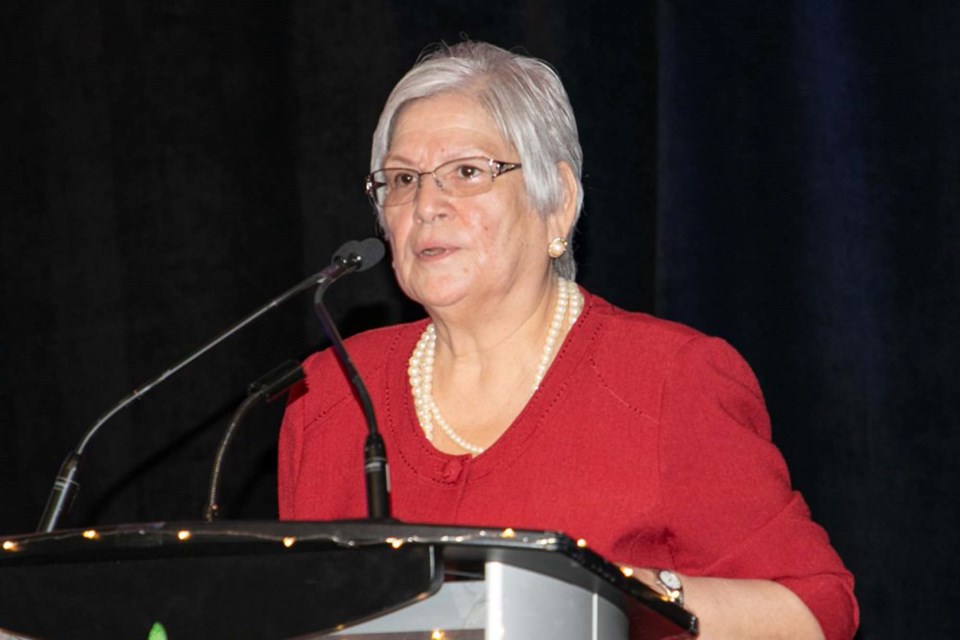ST. ALBERT, ALTA – A renowned addictions treatment training centre near St. Albert wants the federal government to help it move its headquarters off unmarked residential school graves.
The Nechi Institute issued letters last week calling on Prime Minister Justin Trudeau and Assembly of First Nations National Chief Roseanne Archibald to help them move their head office off the site of unmarked residential school graves at Poundmaker’s Lodge.
Established in 1974, the Nechi Institute is an Indigenous education centre which has trained some 15,000 addictions counsellors and therapists worldwide. It was housed in the Poundmaker’s Lodge building just outside of St. Albert from 1986 to April 2020.
In late 2019, Alberta Infrastructure evicted Nechi from the Poundmaker building to make room for more treatment beds at Poundmaker’s Lodge — a move made without consultation with Nechi officials. The training centre moved its offices into derelict trailers next to the Poundmaker building in April 2020 and started renting classroom space in Edmonton.
Poundmaker’s Lodge was built on the site of the former Edmonton Indian Residential School. At least 98 Indigenous Canadians who died at the Charles Camsell Hospital from tuberculosis were buried on the school’s grounds in unmarked graves, some of which have been located using ground-penetrating radar and testimony from school survivors.
Nechi CEO Marilyn Buffalo said the institute learned last July from residential school survivors that those trailers stand on known unmarked graves.
“We can’t stay on top of graves,” Buffalo said, as those graves are sacred grounds.
“As far as I’m concerned, it’s a crime scene and we have to get away from it.”
Buffalo said Nechi can’t afford a second move after costs incurred from its 2020 relocation and losses from the last two years.
“We’re hoping some people will grow a heart,” she said, and support this move as part of Canada’s truth and reconciliation process.
In the institute’s letters to Trudeau and Archibald, Buffalo said the federal government has a legal obligation to provide physical and mental health programs for Indigenous peoples fighting addictions and mental health issues as per the “medicine chest” clause of Treaty 6. She called on the Assembly of First Nations and the federal government to help the institute move so it can continue to address high rates of addictions, crime, and suicides among Indigenous Canadians.
No help coming
In an email, Maddy Warlow of Indigenous Services Canada deferred comment to the Province of Alberta, as the Poundmaker grounds are a provincially-managed site.
“[Indigenous Services Canada] remains committed to working with its provincial counterparts and First Nation Partners on this issue,” she wrote.
Adrienne South, press secretary for Alberta Indigenous Relations Minister Rick Wilson, said in an email that the treatment of children and families that were part of Indian residential schools was a sad chapter in Canada’s history which has caused intergenerational trauma for far too many.
“Finding these resting places and respectfully honouring burial sites is a delicate and heart-rending matter,” she said, and Alberta has provided funds to research, reclaim, and commemorate such graves.
South said Alberta Health continues to support Nechi with a $150,000 grant which the institute can use to support costs associated with finding a more suitable facility.
Buffalo said that grant was from the province's COVID-19 relief fund, had already been used, and had nothing to do with relocation efforts. The cost of moving the Nechi facility is also far higher than $150,000, as most Edmonton-area buildings require tenants to sign multi-year leases.
Assembly of First Nations officials did not respond to several interview requests.



